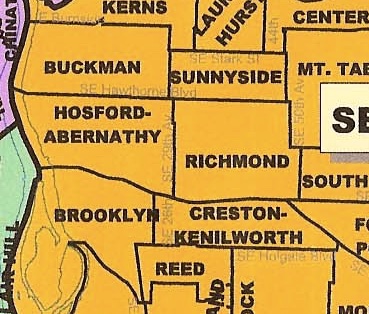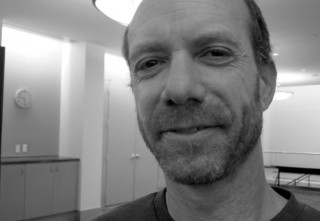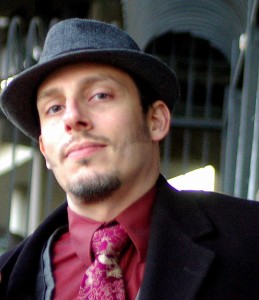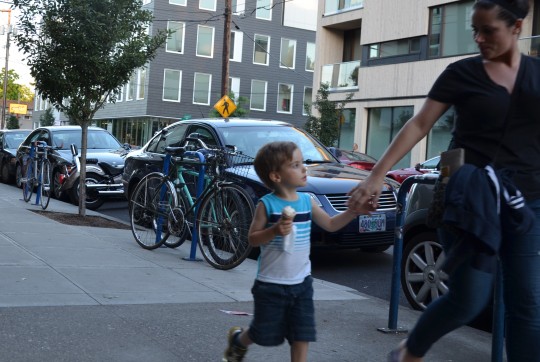
(Photo: M.Andersen/BikePortland)
One of the neighborhood groups that has been a focus of opposition to denser development in Southeast Portland has three new leaders.
But the board chair thrown out in Monday’s election is calling foul play, saying that many Richmond residents showed up and voted against him without getting to know him.
“The perception that [neighborhood associations] are mostly ‘NIMBY’ organizations, has, I think, kept proponents of growth away. Some of us who work within the system have been frustrated by that and are starting to organize a bit more to push back.”
— Tony Jordan, Sunnyside Neighborhood Association board chair
The Richmond Neighborhood Association, which has found itself at the center of Portland’s debate over infill, housing and auto parking, voted out three incumbent board members Monday night: Karin Maczko, Bonnie Bray and the sitting board chair, Allen Field.
In their place, residents chose two members of the advocacy group BikeLoudPDX, which has made heavy auto traffic on Clinton Street one of its key issues, and another resident who objected to what he characterized as the board’s unreasonable opposition to change.
Richmond includes the area roughly between Hawthorne and Powell, SE 29th and SE 50th.
Among other things, the vote seems likely to boost the neighborhood association’s enthusiasm for biking and walking improvements such as diverters on Clinton Street, which runs through the middle of the neighborhood. City officials have reportedly said that Richmond Neighborhood Association support would be essential for such a change.
Field, the ousted board chair, called it “unseemly” that a fellow board member had urged Richmond residents to attend the meeting and vote for candidates other than him.
“We shouldn’t stoop to those kind of tactics,” Field said in an interview. “Personally, if you disagree with a fellow board member’s opinion, I don’t think the proper approach is to vote them out.”
Density and biking issues were central to election
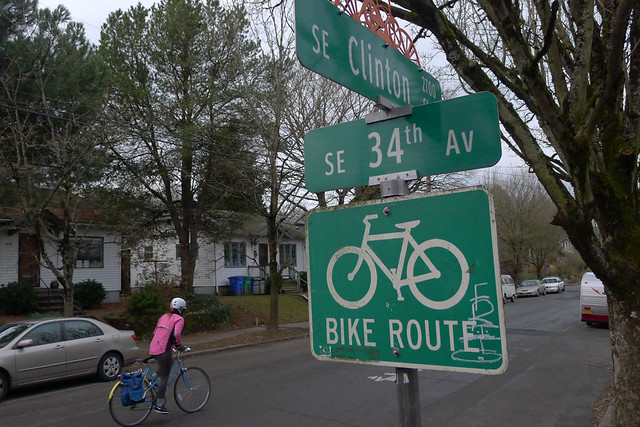
(Photo J. Maus/BikePortland)
All three new board members seemed to have slightly different takes on the highest-profile issue in Richmond: Division Street’s rapid change from a four-lane throughway lined by single-story buildings and parking lots into a four-story commercial hub with very little unused auto parking.
“When I moved here it was easy to fall in love with Portland,” said Tom McTighe, a biking advocate who Richmond residents elected to the board on Monday. “I think Richmond’s — and Portland’s — main challenge is to preserve its lovability as its population increases.”
Erik Matthews, another new board member, said he ran because he wanted to help the Richmond board make “balanced and informed decisions regarding our city’s growth. … I felt like the meetings I had attended lacked what I’m describing.”
Matthews said in an interview Tuesday that although it’s annoying to find on-street parking in Richmond, it might be far easier than in other cities.
“All right, we’ve got a problem,” he said. “But is it really as big a problem as we think and are we really willing to make the sacrifices we’d need to make to solve it?”
“I ran last night because I love living in Richmond Neighborhood, and I want to help shape its transformation into a vital urban space,” said Alan Kessler, the third newly elected member. “I am very happy with the increased density. I believe that the decision to allow dense residential development without adding more space for motor vehicles is progressive and in the best interest of the neighborhood.”
Longtime board member organized “slate” of new candidates
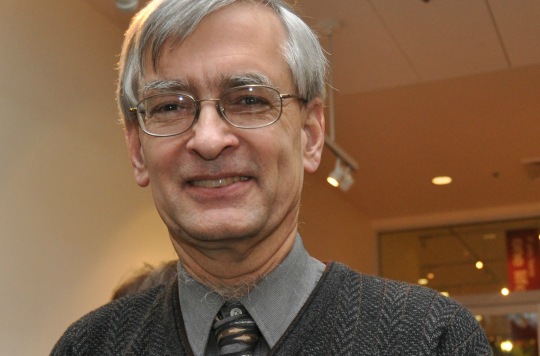
(Photo: Oregon Walks)
All three of those candidates ran after one of Richmond’s longest-serving board members, Doug Klotz, publicly urged bike- and infill-friendly Richmond residents to attend the election and to consider running. Klotz urged people to vote for Matthews, McTighe, Kessler, and another candidate (Dan Brazelton) as part of what he called a “slate of progressives.”
Klotz, a longtime density advocate and Richmond resident who co-founded the advocacy group Oregon Walks in the early 1990s and is also active with BikeLoudPDX, has sparred with Field for years over various neighborhood issues related to parking and urban density.
“I’ve been on the board for 20 years,” Klotz said in an email Tuesday. “My ‘platform,’ if I had one, is for sustainable neighborhood development, including allowing more multi-family housing to be built, and robustly improving bicycle facilities in the neighborhood. Over my time on the board, it seems that the members of the board shifted more and more toward being concerned more with the new buildings going in on Division, and how to slow or stop them, and complaining about parking.”
Klotz’s push for more Richmond residents to attend the meeting worked. Field said that 39 people showed up Monday. The board has 15 seats, four of which were up for reelection. Members serve staggered two-year terms.
Kari Schlosshauer, a sitting Richmond board member who has also been a leading supporter of traffic diverters on Clinton, said she too had urged “a half dozen people I know in the neighborhood” to attend.
“I’ve been rallying people to attend since I got on the board,” Schlosshauer wrote in an email Tuesday. “One of my (lofty!) goals is to get more people participating in our neighborhood meetings, because I think it’s so important that people get involved, and I think most people don’t do enough of it. Most of the time, the people I reach out to don’t come, but some of them were there last night — including my neighbor, Tom McTighe, who said he wanted to run and then got elected.”
Schlosshauer added that she was “actually quite shocked that the elections turned out as they did; I did not vote for all the people who were elected.”
Tony Jordan, an advocate for both density and bicycling who was recently reelected as a member of the neighboring Sunnyside Neighborhood Association, said there was “much excitement” over the Richmond election results.
“There are many people in the neighborhoods who do, in fact, support smarter growth, less parking, etc.” Jordan said Tuesday. “Many neighborhood associations have traditionally been attended and controlled by folks who are more reactionary and would rather see fewer additional residents to their communities. This reality, and the perception that NAs are mostly ‘NIMBY’ organizations, has, I think, kept proponents of growth away. Some of us who work within the system have been frustrated by that and are starting to organize a bit more to push back.”
Advertisement
Recruiting residents to vote “introduced a toxic element,” ousted board chair says
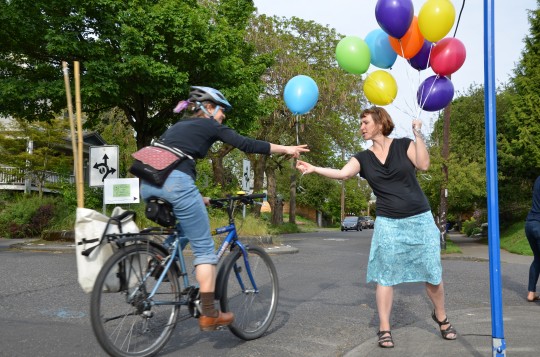
(Photo: M.Andersen/BikePortland)
Field, for his part, said Tuesday that he believed Klotz had “introduced a toxic element on this board.”
“To vote me out just for this, it seems like kind of a loss to the neighborhood.”
— Allen Field, former board chair
“It’s a different animal than a real election,” said Field, who said he’s served on the board since 2005 or 2006. “We don’t really do politicking. It’s pretty much whoever shows up at the meeting.”
Field said that though he often urges people to join the board if they show up at meetings to voice their opinions on local projects, he hadn’t sent any emails urging people to show up to Monday’s vote.
“For many years, for a long time, we had perennial open seats,” Field recalled of his early years on the board. “And then when Division development started happening, people started to be interested. So all of a sudden people wanted to be on the board, more people coming to our meetings. But it’s never happened before that I know of that one board member calls people to come to meetings who’ve never been to a meeting just to vote out people.”
“I have a lot of institutional history on the board; I do a lot for the board, parks cleanup and so on,” Field said. “To vote me out just for this, it seems like kind of a loss to the neighborhood.”
Field said he is a bicycle commuter who uses the much lower-traffic Harrison Street on his own commute. He denied Klotz’s description of his board as “less than bike-friendly.”
“I’ve been hit by cars; I understand the problems with bikes and cars intermixing,” Field said.
Klotz said Field had staunchly opposed a traffic diverter on the 50s Bikeway and that the Richmond board had recently avoided an endorsement of traffic diverters on Clinton Street.
Field also said he is “not anti-density.”
“I’m for balancing the needs of density versus the needs of livability,” he said. “I want to keep a lot of what’s Portland’s charm and not just turn over everything to density. I grew up in Los Angeles, so I’d hate to see Portland turn into the density like L.A.”
Though Field said he didn’t believe any out-of-neighborhood voting had taken place in Monday’s election, he said that maybe Richmond should make it harder to vote in its elections by requiring participants to show up with documentation proving their residence.
“Who knows? Maybe next year we’ll have to do these full-on driver’s license checks,” he said.
Field added that utility bills could be a substitute for people who don’t have driver’s licenses.
Diverters a key issue for new board members
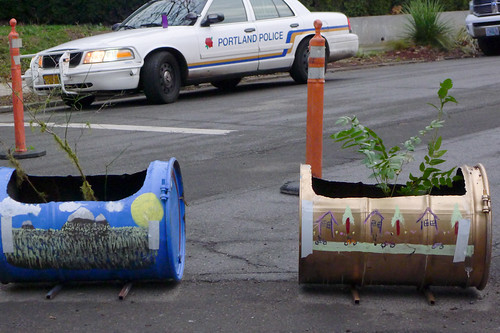
(Photo J. Maus/BikePortland)
Cyd Manro, the sitting board member who was elected Monday to replace Field as chair, said he thought Field had done a good job in his years as chair.
Manro said Field “made some mistakes” but had made a good-faith effort to correct them when called out. Manro said the board is “in the fact-finding stage” of an effort to determine if Klotz violated any rules in the election process.
Matthews urged board members defeated in the election not to abandon neighborhood advocacy.
“I think those that have been on the board should continue to stay involved and help make a difference in their community, and I think the opportunity to do that is there,” Matthews said.
In response to Field’s suggesting that new board members might drop out after a few meetings, Matthews said he’d “had an interest in the neighborhood association for years.” When he left a comment on a neighborhood blog, Klotz emailed him to suggest that he should consider running for the board.
“I hadn’t realized they were having elections and decided, why not now?” Matthews said. “Having started a new business, I’m more in tune with what’s going on in my neighborhood.”
Schlosshauer said that Portland Bicycle Planning Coordinator Roger Geller and Portland Active Transportation Manager Margi Bradway have both been among the city officials who told her that Richmond Neighborhood Association support would be required for diverters to be installed on Clinton Street.
“I’ve heard it so frequently that I stopped writing it down,” she said.
Kessler, who like McTighe, Schlosshauer and Klotz has been active in the BikeLoudPDX group, said he’s passionate about that issue.
“A natural side effect of the increased density and streetscape improvements on Division is that the side streets are being used more frequently and more aggressively by cut-through drivers,” Kessler said. “I want to do what I can to prioritize diverters and other traffic control infrastructure to preserve our greenways and Safe Routes to School. I have a two-year-old son who regularly rides with me to and from daycare on Clinton. When he’s older, I would love for Clinton to be safe enough for him to ride next to me on his own bike.”
Corrections: The original version of this story said the city has repeatedly told activists that neighborhood support would be required to installed diverters on Division Street. That’s incorrect. We meant on Clinton Street. Also, the post described Tony Jordan being “recently reelected as president” of the Sunnyside association. He was recently reelected as a board member and plans to run for president but has not been reelected as president.
Clarification: We’ve rephrased a sentence to clarify something Field said about new board members: he was observing that new board members might not stick around for multiple meetings, but not intending to criticize this tendency.
